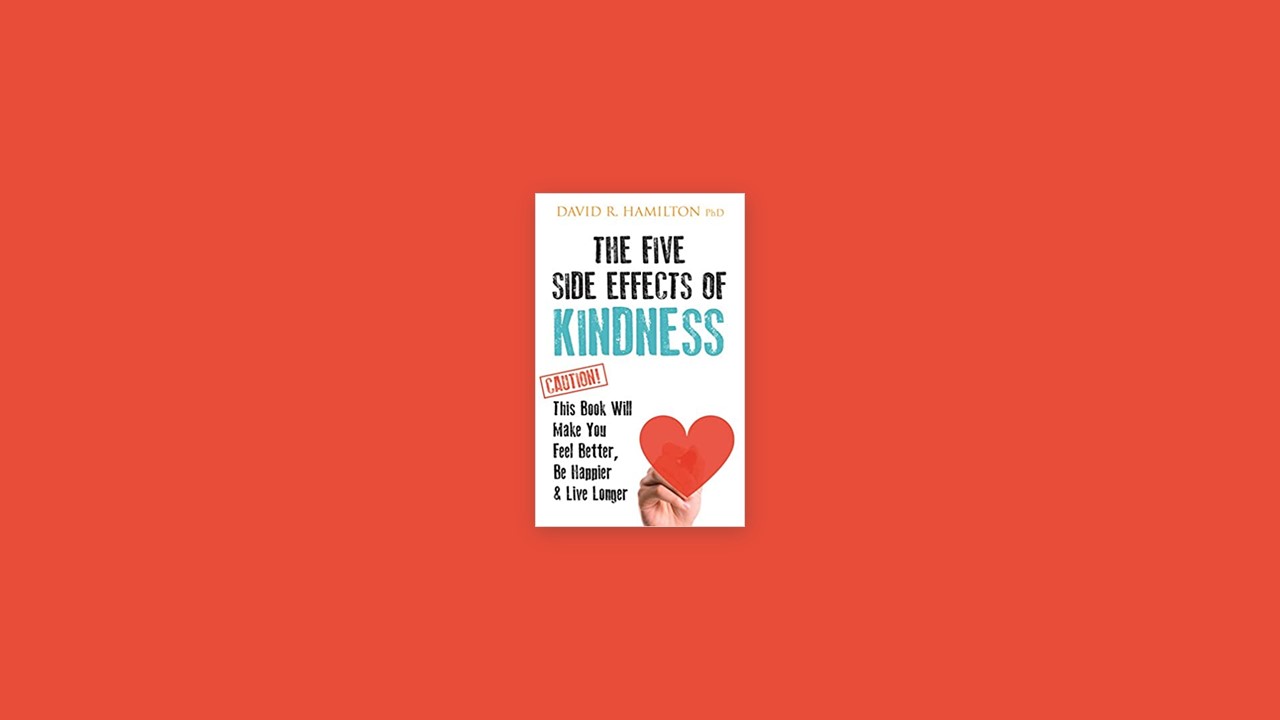The 1st Side Effect: Kindness Makes Us Happier
Kindness can bring a smile to a person’s face. But it also brings a smile to the face of the giver. It makes us all happier.
Children feel happy when they’re kind. Adults feel happy when they’re kind. Older adults who volunteer to help others feel happier and have a greater sense of purpose and a greater will to live.
Kindness can help relieve depression. It can boost self-esteem. It can reduce social anxiety.
Kindness physically changes the brain. It produces serotonin, which is exactly what some antidepressants seek to boost. It also alters the structure of the brain if we practise it consistently, essentially ‘wiring in’ a kind nature and the happiness that comes with it.
Compassion and gratitude, both aspects of kindness in a broad sense, also improve happiness.
The 2nd Side Effect: Kindness Is Good for the Heart
Kindness uplifts us. Whether we witness it, receive it or show it, it produces a feeling of elevation.
This feeling causes the release of oxytocin, which is a molecule of kindness, in our body. This, in turn, triggers the release of nitric oxide and ANP. The result is the dilation of our arteries and a reduction in blood pressure. Kindness is Viagra for our arteries.
Nitric oxide also helps protect against the formation of the plaques that can lead to a heart attack or stroke.
Oxytocin also counters two processes that lead to hardening of the arteries: oxidative stress (free radicals) and inflammation.
So kindness protects the heart – it is cardioprotective.
Being kind to animals is also good for the heart. It helps reduce blood pressure and having a dog significantly reduces the chances of a heart attack (by 400 per cent).
Kindness is also an antidote to stress, so it can offset the risk that stress poses to our cardiovascular health.
Hugs are good for the heart. A hug a day keeps the cardiologist away.
The 3rd Side Effect: Kindness Slows Ageing
There are seven processes of ageing that can be slowed by kindness. They are: muscle degeneration, reduced vagal tone, inflammation, oxidative stress, depleted nitric oxide, shortened telomeres and immunosenescence.
Kindness helps muscle regeneration because oxytocin plays a crucial role in the process. Without enough oxytocin, muscle regeneration is slower.
Kindness also boosts vagal tone, enabling us to improve our ability to neutralize persistent (chronic) low-grade inflammation, which plays a role in many diseases and in ageing.
In producing oxytocin, kindness is also able to help mop up the free radicals that cause oxidative stress. This is important for our arteries but also for the ageing of our tissues, particularly the skin. Free radicals play a key role in the formation of wrinkles. Thus, as we produce more oxytocin through kindness, we can slow the development of the more visible signs of ageing.
Depleted nitric oxide is one of the most significant processes of ageing because nitric oxide is needed to maintain so many systems of the body. We can boost our nitric oxide through consistent thoughts, feelings and acts of kindness. Like oxytocin, nitric oxide is a molecule of kindness.
Telomeres are the end caps on DNA. Slowing the wear and tear on them slows ageing, and kindness, compassion and emotional support have been shown to substantially slow the loss of telomere length.
Immunosenescence is the gradual weakening of the immune system that occurs with age. The feelings of elevation that kindness produces, can boost the immune system.
The 4th Side Effect: Kindness Improves Relationships
Kindness is what most of us want in a partner. It’s what we find most attractive and what people find attractive in us.
Our ancient ancestors learned that it was easier to share and that there was safety in numbers. This is why kindness is our nature. It’s also why it’s so healthy for us. The gene that produces oxytocin is over 500 million years old and has become integrated into a large number of our body’s systems, which means these systems respond to kindness. That’s why kindness makes us happier, is good for our heart and slows ageing.
Kindness helps us shine. It helps us be the best we can be. We always remember the acts of kindness that helped us to expand.
Kindness is also what makes friendships and relationships successful. Our friends and loved ones make bids for connection several times a day and when we respond actively and supportively, it increases the chances of our relationships standing the test of time.
The 5th Side Effect: Kindness Is Contagious
Motivation usually leads to action. Elevation motivates us to be kind, so we will follow through with actual kindnesses.
Sometimes we plan them – we think of helping particular people in our lives and then we act. Sometimes we simply act on opportunities as they present themselves.
In one piece of research that examined how elevation actually motivated kindness, one group of volunteers was shown a morally uplifting video clip and another group was shown a funny clip (for comparison purposes). The uplifting clip was from The Oprah Winfrey Show.
The volunteers who watched the uplifting clip reported feeling uplifted, optimistic about humanity, warm in the chest and/or happy, as we might have expected.
But the key to the experiment was the next part. Did the effect stop at motivation or did people actually follow through?
The volunteers were asked to help with a different task. Would those who felt elevated after witnessing kindness be more likely to help than those who had merely had a laugh? Indeed they were. Those who had watched the Oprah clip were the ones most likely to help.
And in a separate experiment, the researchers found that those who had experienced elevation after watching the Oprah clip actually spent twice as long helping them with a task as those who had watched the comedy clip.
In other words, in any one day you’re likely to be touching the lives of dozens or even hundreds of people without realizing, just as a single pebble dropped in a pond will lift dozens or even hundreds of lily pads on the surface of the water.
The Seven-Day Kindness Challenge
We challenge you to perform at least one act of kindness a day for seven days in a row. The intention behind this is to make people smile, to lift spirits – to make a difference.
A few ground rules to make it interesting and to help you (and others) get the most out of it:
- It must be something different each day. You can do the same thing on two different days, but it only counts the first time.
- You have to push yourself out of your comfort zone at least once – that is, do something that stretches you.
- At least one of your acts of kindness must be anonymous. That is, no one must know it was you who did it. You can’t tell anyone about it.
There you have it. Now go out there and reap the side-effects of kindness. Good luck!


